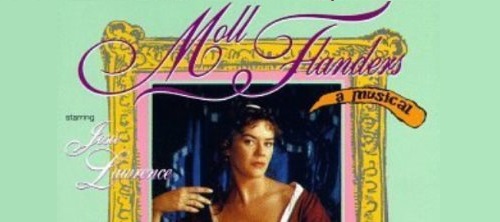Abandoned by her mother, married five times, a baronet's mistress, a plantation owner and a professional thief… Moll Flanders is a woman to watch.
This is her adventure story from rags to riches, from Colchester to the USA.
Moll Flanders, or to give it its full title, The Fortunes and Misfortunes of the famous Moll Flanders was published in 1722. It is written in the form of a fictional autobiography of the girl known as Moll whose mother was convicted of petty theft and sentenced to be hanged. By "pleading her belly", Moll's mother's earns a stay of execution as it was not customary to execute pregnant criminals. Instead, her mother is sent to the plantations in America. Moll, however, remains in England with some gypsies who leave her in Colchester. Parish officers in the Essex town put her in the care of a good woman who has a small school, where she is raised until adolescence. She tells her nurse that she wants to be a ‘gentlewoman’ or in other words that she wishes to support herself.
Moll goes to live at the home of one of the town's ladies who is so impressed with her attitude as companion to her daughters. Romantic confusion ensues as Moll and the lady’s elder son fall in love, only for this to be ruined by his younger brother Robin’s open offer of marriage. Robin and Moll marry but in five years the latter is left a poor widow with only £1,200 (her two children are taken off her hands by her parents-in-law).
Moll begins honing the skill of passing herself off as a fortuned widow to attract a man who will marry her and provide her with security. The first time she does this, her husband goes bankrupt and leaves her on her own with his blessing to do the best she can and assume he is dead. The second time, she makes a match that leads her to a plantation in Virginia with a good man who introduces her to his mother. After two children, Moll's happines there is ruined by the realisation that her her mother-in-law is in fact her own mother, and that she has married her brother. After Moll leaves him she flees back to England and goes to live in The Mint to hide from her debtors.
Again she returns to her con skills and makes a match with a man from Lancashire who turns out to be a gentleman without means who has been conning her (falling for her con that she is a wealthy widow). Alas, these two truly fall in love, but part anyway because they have not a penny to live on if they stay together. Moll resorts to another conned beau, a banker, who marries her then dies in financial ruin after five years.
Truly desperate now, she begins a career of artful thievery, which, by employing her wits, beauty, charm, and feminity, brings her the financial security she always sought.
Downside: she is caught, and sent to Newgate Prison. Here, she is counselled by a man of the cloth who leads her to repentance and enlightenment. At the same time, she reunites with her soul-mate, her "Lancashire husband," who is also jailed. The two are sent to Maryland to avoid hanging, and happily are together.
Once in the colonies, she learns her mother has left her a plantation and her own son is alive, as is her brother (husband). She carefully introduces herself to her son who welcomes her with open arms.
At last, her life of conniving and desperation seems to be over. Her wits now employed toward business and good sense, she establishes a successful farm with her Lancashire husband, and the two retire in prosperity.

.png)
.png)





